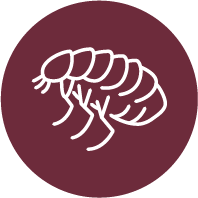Common Earwig Myths and the Truth behind Them
They’re creepy, they’re crawly, and they’ll leave you with a distinct feeling of being skeeved out. Earwigs can be especially icky, thanks in no small part to those rather menacing looking pincers. While they aren’t a welcome guest to anyone, they may not necessarily deserve the entirety of their negative reputation. In fact, some of what you may believe about earwigs may not be true at all.
They'll Try to Live In Your Ear
Arguably the most common myth about earwigs is that they’ll try to live in your ear. It’s in the name of the creature, after all, so you could be forgiven for believing this one. Still, it’s not the truth of the matter. They don’t find human victims and try to crawl in their ears while they’re asleep. In fact, their preference is to live outdoors in damp areas like in rotted wood or dead leaves.
They'll Eat Your Brain
One of the more disconcerting myths about earwigs is that they’ll eat your brain. This one often goes hand in hand with the whole living in the ear thing. The idea is that they crawl into your ear and burrow into your brain where they’ll lay their eggs. The truth of the matter is that our brains are not ideal food for earwigs, nor are they the preferred nesting spot. Instead, earwigs feed on decaying plant material and nest their eggs in soil tunnels.
They are Dangerous
Those pincers that earwigs have look formidable, but they aren’t actually dangerous to us. True, they are meant to be used as both an offensive and defensive weapon, but earwigs aren’t going to just come after you and try to hurt you. They might try to pinch you if you handle them, but don’t worry too much. Though it can be painful (it is a pinch, after all), earwigs are not venomous. It’s rare for them to break the skin.
It’s not uncommon for there to be misconceptions about different pests. Contrary to what some believe, earwigs aren’t going to try to live in your ear or eat your brain. As it turns out, they aren’t even all that dangerous. That said, they still aren’t pests you’re going to want as guests in your home, if for no other reason than that they tend to smell rather unpleasant if they happen to be disturbed.
Concerned about the presence of earwigs (or any other pest, really)? Contact us so we can get you set up with a pest control plan that’s personalized to meet your needs.
















